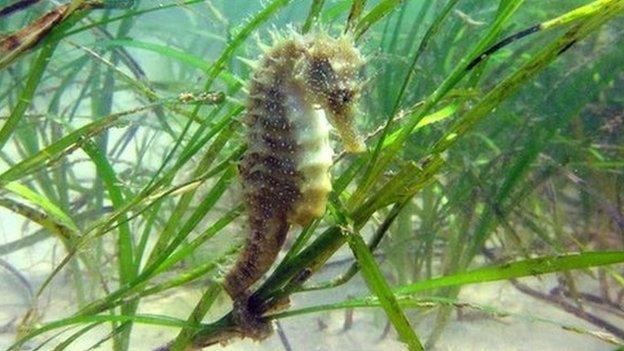Dorset wildlife experts call for 'reptile tins' to be left alone
- Published
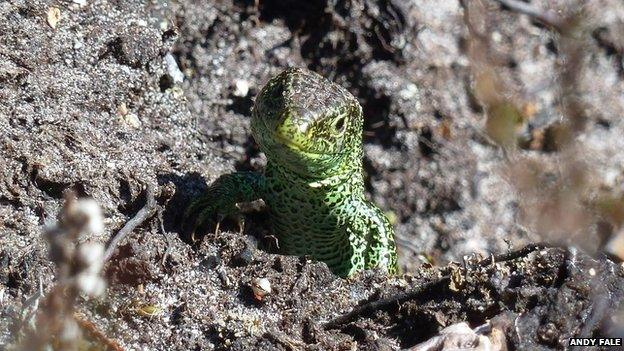
The sand lizard is the UK's rarest lizard, according to the Dorset Wildlife Trust
Rusty bits of tin found in Dorset nature reserves should be left alone, wildlife charities have urged.
They are vital shelters for reptiles and are placed there by researchers counting protected species.
Reptile conservationist Gary Powell said: "If tins are disturbed outside of an official survey then it can affect the results of the research".
Disturbing protected species could result in breaking the Conservation of Habitats and Species Regulations Act.
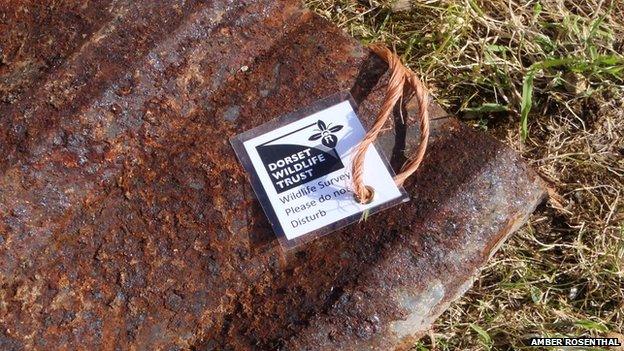
Pieces of tin or roofing felt found in nature reserves should be left undisturbed
Conservationists from Amphibian and Reptile Conservation and Dorset Wildlife Trust leave small pieces of tin and sometimes roofing felt at Upton Heath nature reserve in Corfe Mullen.
All six native reptiles can be found there: the smooth snake, adder and grass snake, the common lizard, slow worm and the UK's rarest lizard, the sand lizard.
Dorset Wildlife Trust said: "If you spot small pieces of tin or bits of roofing on a nature reserve, please don't lift it up to see reptiles underneath.
"Did you know you actually need a licence to do this?
"Getting a photo or peek of a reptile is priceless, but all six native reptiles which can be found on Upton Heath are legally protected as they are so special.
"Anything to disturb them may be breaking the law."
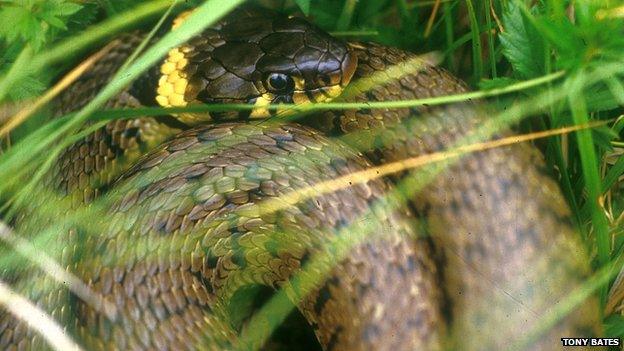
Grass snakes are one of six reptiles found at Upton Heath nature reserve in Dorset
- Published5 March 2015
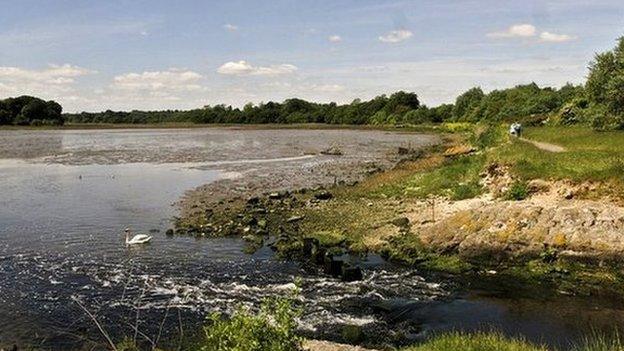
- Published23 June 2015
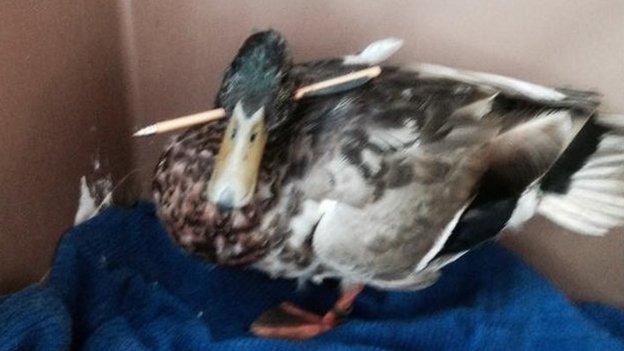
- Published15 May 2015
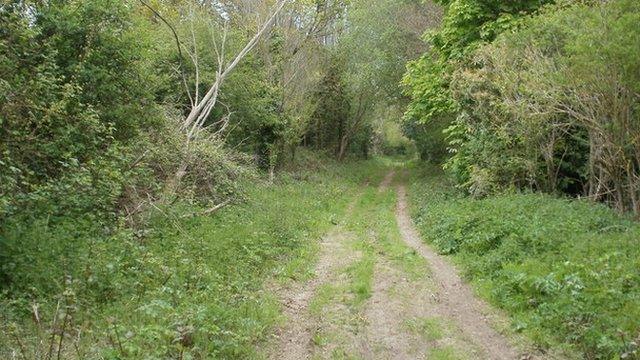
- Published10 March 2015
